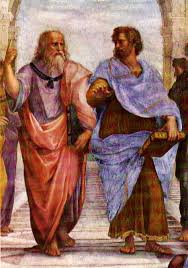Ancient philosophy
Many of the doctrines central to Christianity have important philosophical implications or presuppositions. In the history of Christian theology, philosophy has sometimes been seen as a natural complement to theological reflection, whereas at other times practitioners of the two disciplines have regarded each other as mortal enemies.
This course is intended to be an introduction to philosophy both in the sense of a primer and in the sense of a guide to understanding the essential nature of the philosophical enterprise and its relationship to and influence upon science and religion in general and Christianity in particular. The central questions as to the nature and scope of philosophy will be approached historically, tracing the emergence and development of philosophic thought in ancient Greece.
Competences
Specific competences
The student will be able to recognize the principles and to use the methods of philosophy (of religion).General competences
The student will make knowledge with the religious (and not only) ideas of ancient philosophical schools, and will be able to compare them. The student will (re)discover and utilize the ancient Greek philosophy.Course structure
Total estimated time
| Classroom study | Course | Seminar | Practice | |
|---|---|---|---|---|
| 2 hours/week | 2 | 0 | 0 | |
| 28 hours/semester | 28 | 0 | 0 | |
| Individual study | Hours/sem | |||
|---|---|---|---|---|
| Total estimated time | 103 | |||
| Studying course notes and bibliography | 50 | |||
| Further documentation in libraries, electronic platforms, or on the field | 15 | |||
| Preparing essays, papers, or documentation | 8 | |||
| Personal tutoring | 2 | |||
| Total individual study | 75 | |||
Examination
The main elements of the exam: preparing written papers; active presence on classes, oral exam
Bibliography
Book
- (2010): Ókori görög gondolkodók. Filozófiai bevezetés a teológia tanulmányozásához. Cluj-Napoca: Kolozsvári Protestáns Teológiai Intézet, 251 old.
